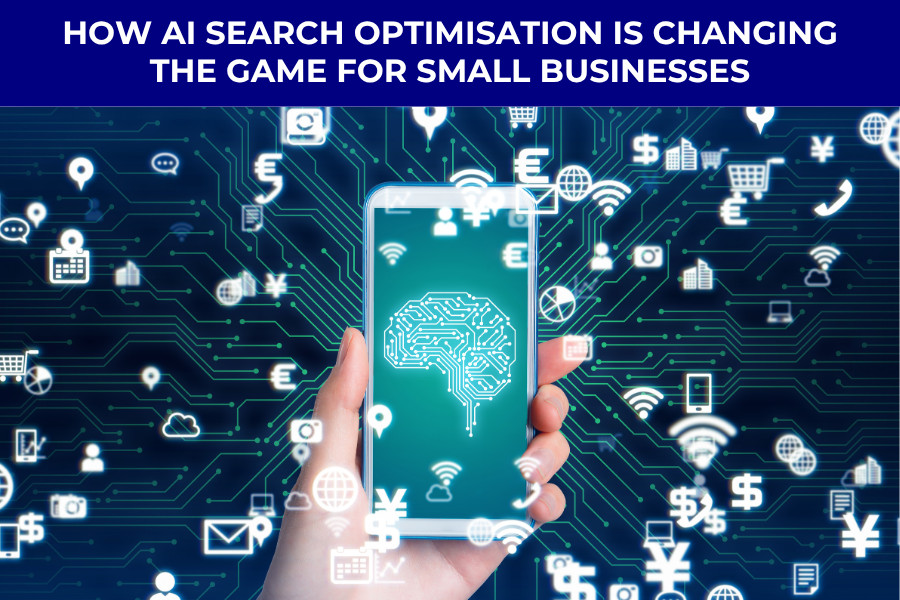AI search is quietly revolutionising how South African customers discover local businesses, with tools like ChatGPT and Claude now recommending specific shops, restaurants, and services directly to users – and most business owners have no idea it’s happening.
Last month, I watched my neighbour’s bakery in Melville get three new customers in one day. All from people asking ChatGPT where to find the best koeksisters nearby. The AI recommended her shop specifically, mentioning her “traditional recipes” and “friendly service.”
She had no clue this was happening until customers started mentioning it. That’s when it hit me – if you’re running a small business in SA and haven’t thought about AI search optimisation yet, you’re missing out on free customers walking through your door.
How AI Search Actually Works
Think of Google as a librarian pointing you to books. AI search is more like having a knowledgeable friend who reads those books and gives you direct answers.
When someone asks ChatGPT “where can I get my car serviced in Sandton?” it doesn’t show ten blue links. It gives a conversational response, often recommending one or two specific businesses by name.
The tricky part? Most business owners don’t even know their customers are finding them through AI search. There’s no notification. No analytics dashboard. Customers just show up mentioning they “heard good things” about your business online.
Getting Your Business Ready for AI Search
Start with Your Google Business Profile
Your Google Business Profile is like your business ID card for AI systems. Fill out every section completely.
Add your exact address with the suburb name. Upload photos of your actual shopfront and team. Most importantly, write a proper business description that mentions what you do and where you do it.
“Johnson’s Auto Repairs in Randburg specialises in Toyota and Volkswagen servicing” works better than “Quality car repairs.”
Create Content That Answers Questions
Start thinking about the questions customers ask you every day. Those are gold for AI search optimisation.
If you run a restaurant, don’t just list your menu. Answer questions like “do you cater for vegans?” or “can you handle large groups?”
A local garden centre owner in Durban told me she started getting more customers after writing a blog post about “plants that survive Durban humidity.” She didn’t try to sound fancy. She just shared what she knew in simple terms.
The AI systems loved it because it was helpful, specific to the local area, and answered a real question people were asking.
Making Your Website AI-Friendly
Your website doesn’t need to be perfect, but it needs to be clear. AI systems prefer content that’s easy to understand and well-organised.
Use simple headings that explain what each section covers. Write like you’re explaining things to a friend, not like you’re writing a university essay.
Most importantly, make sure your site loads quickly on mobile phones. South African Internet can be slow, and AI systems notice if your site takes forever to load.
Local Details Matter More Than Ever
AI systems pay attention to local details in ways that Google’s traditional search never did. Mention specific areas you serve, local landmarks near your business, and South African-specific terms.
Instead of saying “we provide excellent customer service,” try “we service the Johannesburg area, including Sandton, Randburg, and Midrand.” AI systems love specific geographic information.
The Language Advantage
Here’s something interesting I’ve discovered: businesses that use South African terms and expressions naturally get recommended more often to local customers.
Don’t try to sound American or British online. Use the words your customers use. Talk about “taxis” not “cabs,” mention “braais” not “barbecues,” and reference local areas the way locals do.
Building Trust Signals
Customer reviews still matter, but now they matter for AI recommendations too. Encourage satisfied customers to leave reviews that mention specific services and your location.
A review saying “Great service in Pretoria” helps more than “Five stars!” when it comes to AI search.
Getting Started This Month
Pick three questions customers ask you regularly. Write simple, helpful answers on your website or social media. Include your location and specific services you provide.
Update your Google Business Profile with complete information and recent photos. Ask your next few satisfied customers to leave reviews mentioning what you helped them with.
Start with these small changes. AI search optimisation isn’t about massive website overhauls or expensive tools. It’s about being clear, helpful, and authentically local online.
The businesses winning with AI search right now aren’t the ones with the biggest marketing budgets. They’re the ones providing genuine value and communicating clearly with their communities.
Your customers are already asking AI systems for recommendations. The question is whether your business will be ready when they do.
Learn more: AI Search Optimisation: A Guide to Getting Your Small Business Found










